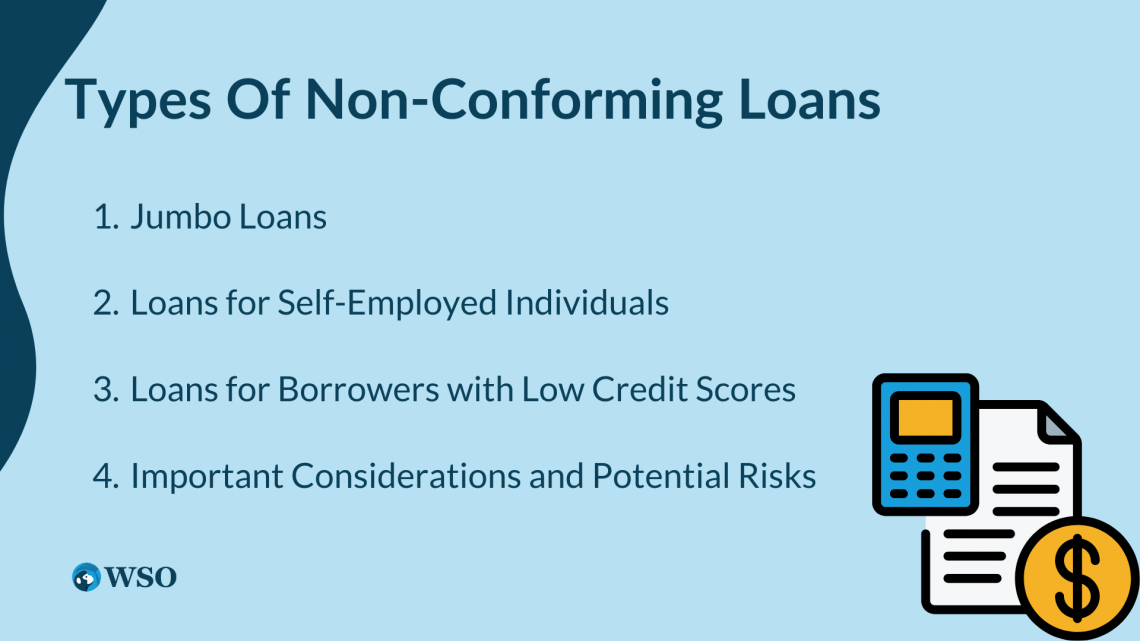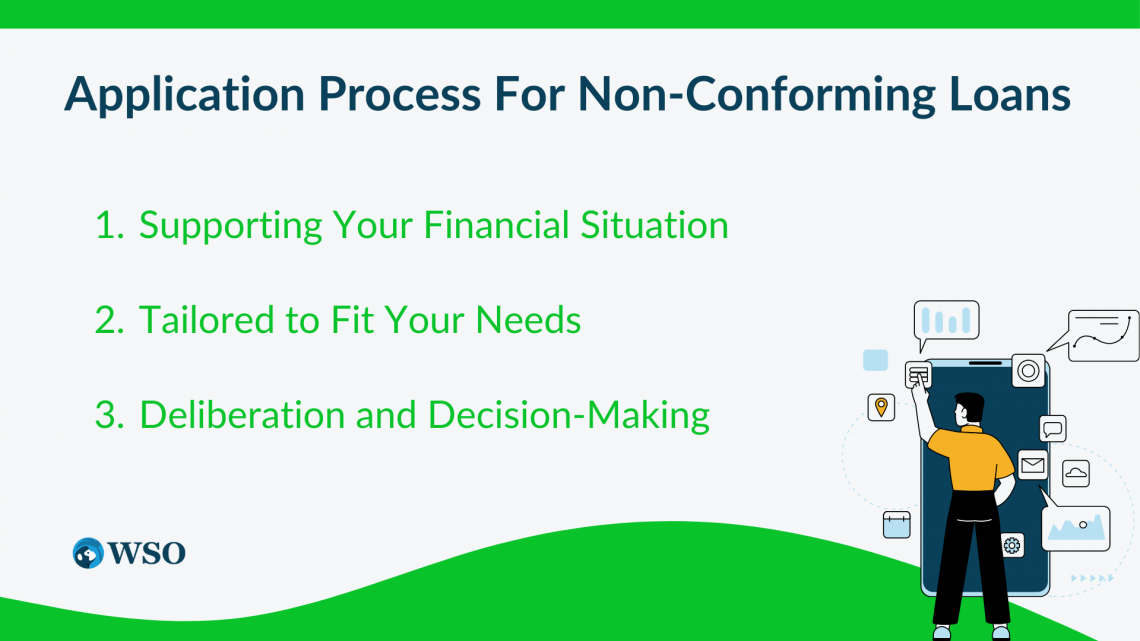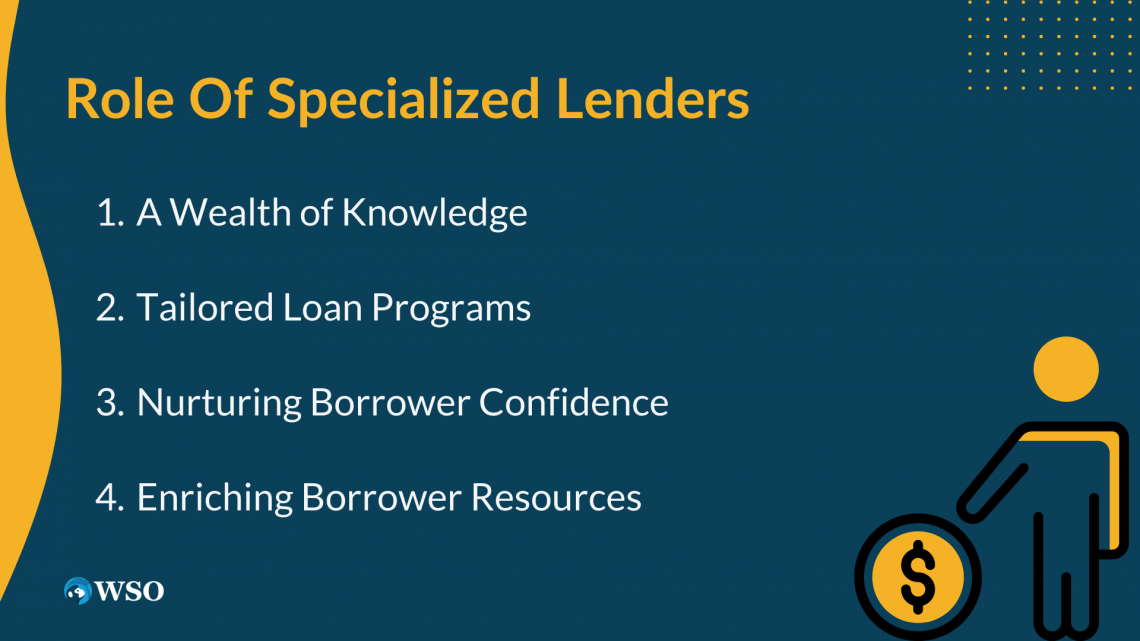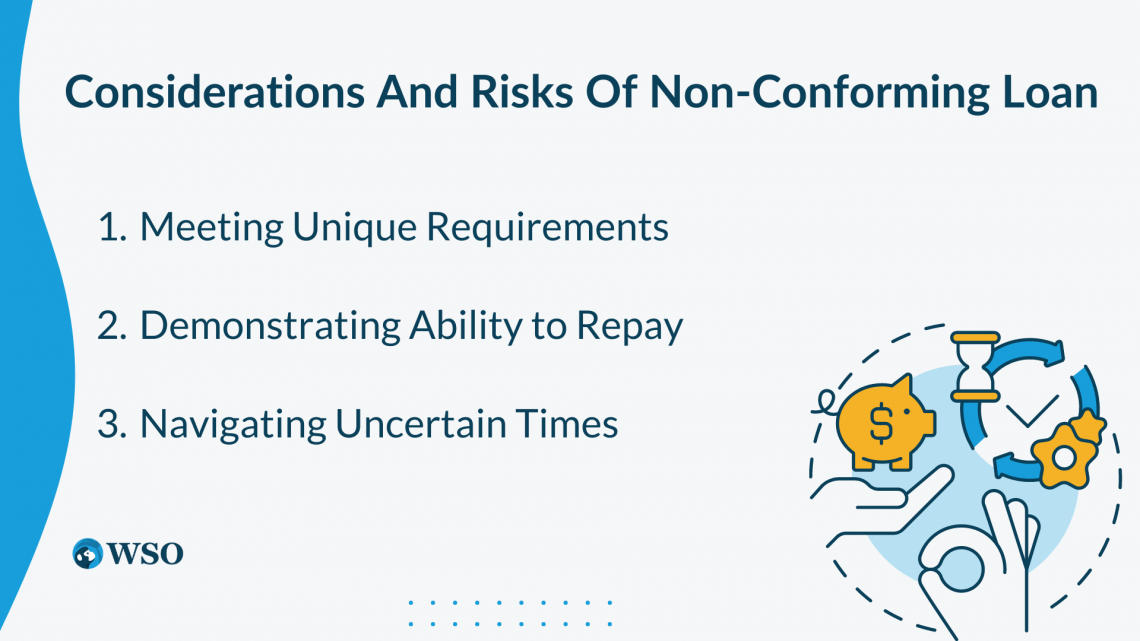Non-Conforming Loan
It is a type of mortgage that does not adhere to standard eligibility criterias. They are often used for high-value properties or unique borrower situations.
What is a Non-Conforming Loan?
A non-conforming loan is a type of mortgage that does not adhere to standard eligibility criterias. They are often used for high-value properties or unique borrower situations.

Obtaining a loan holds immense importance for countless individuals and businesses diligently working to achieve their financial aspirations.
However, navigating the lending landscape can prove to be challenging due to the strict guidelines imposed by traditional lenders. These guidelines often create obstacles for borrowers with unique financial circumstances.
Fortunately, a solution has emerged in the form of non-conforming loans, presenting a flexible financing option tailored to those who do not meet the conventional lending criteria.
Through this article, we aim to provide an in-depth exploration of loans, uncovering their benefits and distinguishing features compared to traditional loans.
While these rules minimize risks, they inadvertently exclude individuals whose financial situations lie beyond established boundaries.

Often referred to as unconventional or jumbo loans, these loans have gained significant popularity due to their inherent flexibility, accommodating a broad range of financial circumstances.
They empower borrowers to secure funding even if they do not meet the stringent criteria set by traditional lenders. Throughout our exploration, we will delve into the key benefits offered by non-conforming loans. We will highlight their inherent flexibility, accessibility to financing, and capacity to provide tailored solutions.

By developing a comprehensive understanding of loans, readers can explore alternative avenues that may better serve their financial objectives and overcome the limitations posed by traditional lenders.
Furthermore, we will address vital considerations and potential risks associated with non-conforming loans, ensuring readers are well-informed.
By examining the benefits and distinctions of non-conforming loans compared to traditional options, borrowers can gain invaluable insights into this flexible financing avenue, empowering them to make well-informed choices regarding their financial future.
Key Takeaways
- A non-conforming loan is a type of mortgage that does not adhere to standard eligibility criteria. They are often used for high-value properties or unique borrower situations.
- Non-conforming loans typically have higher interest rates and stricter qualification requirements.
- Specialized lenders sell these loans.
- Borrowers with unconventional income sources or low credit scores may benefit from non-conforming loans.
Types Of Non-Conforming Loans
Let us dive into the possible types of non-conforming loans a borrower might encounter.

Each loan type serves specific needs and circumstances, providing alternative options outside the traditional lending criteria. Some of these are:
Jumbo Loans
Jumbo loans are designed for financing properties that exceed the loan limits set by government-sponsored enterprises like Fannie Mae and Freddie Mac.
These loans come into play when borrowers seek to secure substantial funding for high-value real estate, including luxury homes or investments in premium real estate markets.
Loans for Self-Employed Individuals
Non-conforming loans also cater to self-employed individuals who may have unconventional income sources or documentation. These loans understand the unique financial situation of self-employed borrowers and provide flexibility in verifying income.
Note
By considering alternative means of income verification, non-conforming loans offer opportunities for entrepreneurs, freelancers, and small business owners to access financing and pursue their goals.
Loans for Borrowers with Low Credit Scores
While traditional lenders often have strict credit score requirements, non-conforming loans open doors for borrowers with low credit scores. These loans take a more comprehensive approach to assessing the borrower's financial profile.
Note
This inclusive evaluation allows individuals working to rebuild their credit to have options and access to the financing they need.
Important Considerations and Potential Risks
While non-conforming loans provide tailored solutions, access to financing, and flexibility, it is essential to carefully consider certain factors and potential risks before making a decision.
One crucial consideration is understanding the loan's terms and conditions thoroughly. Assessing how these terms align with your financial situation and long-term objectives is important.
Additionally, exploring and comparing alternative financing options alongside non-conforming loans is wise.
Moreover, it is important to be aware of potential risks that may come with non-conforming loans. These risks can include higher interest rates, stricter underwriting requirements, or potential prepayment penalties.
Note
By understanding the advantages, types, and considerations associated with loans, borrowers can make informed decisions and leverage this alternative avenue to secure the funds they need to thrive in the ever-changing financial landscape.
Application Process For Non-Conforming Loans
Securing a loan involves a distinctive application process that sets it apart from traditional loans.

Borrowers who are considering this flexible financing option should be aware of the following key aspects when navigating the application process.
Supporting Your Financial Situation
This documentation may include bank statements, tax returns, proof of assets, and other relevant financial records.
To streamline the process, borrowers are encouraged to gather and organize their financial documents in advance. This includes ensuring that all necessary paperwork is up to date and readily accessible.
Note
By preparing the required documentation, borrowers can demonstrate their financial stability and enhance their chances of securing a loan.
Tailored to Fit Your Needs
Lenders offering loans understand that each borrower's financial situation is different. Therefore, they strive to provide flexibility in repayment schedules, interest rate options, and adjustable loan amounts.
This customization ensures that borrowers can find loan terms that align with their financial goals and capabilities.
When discussing loan terms with the lender, borrowers should communicate their preferences and financial objectives. This includes discussing factors such as the desired loan amount, repayment period, and any specific requirements or considerations.
Note
By actively participating in the customization process, borrowers can shape loan terms that meet their specific needs and enhance their financial success.
Deliberation and Decision-Making
Compared to traditional loans, the approval process for these loans may take longer due to the comprehensive evaluation involved. The lender carefully assesses the borrower's financial situation, considers various factors, and thoroughly underwrites the loan application.
During the approval process, borrowers should remain patient and maintain open communication with the lender. By being proactive and engaged, borrowers can help expedite the approval timeline and facilitate a timely decision on their loan application.
The application process for loans requires careful attention to documentation, active participation in lender evaluation, and effective communication to achieve customized loan terms.
While the process may take longer than traditional loans, the flexibility and tailored solutions offered by loans make them a valuable financing option for borrowers with unique financial circumstances.
By understanding the distinctive elements of the loan application process, borrowers can approach the journey with clarity and confidence.
Note
Being prepared with the required documentation, understanding the lender's evaluation criteria, and acknowledging the longer approval timeline can contribute to a smoother experience and increase the chances of securing the financing needed.
Role Of Specialized Lenders
Non-conforming loans, with their unique features and borrower requirements, often find a home with specialized lenders who focus on serving individuals with distinctive financial situations.

These lenders play a crucial role in providing tailored solutions and supporting borrowers throughout their loan journey. Let us explore the key ways in which specialized lenders make a difference.
A Wealth of Knowledge
Specialized lenders possess extensive expertise and experience in offering loans.
This specialized knowledge allows them to navigate the complexities of loans with finesse and provide borrowers with comprehensive solutions that align with their unique circumstances.
By working with specialized lenders, borrowers gain access to professionals who can guide them through the intricacies of financing, ensuring a more informed and efficient borrowing experience.
Tailored Loan Programs
Specialized lenders go beyond traditional lenders' standardized offerings by providing a broad range of loan products. They recognize that borrowers with atypical financial situations require customized solutions considering factors beyond credit scores.
These lenders design loan programs that consider various aspects, such as assets, income potential, and financial projections.
Note
The flexibility allows borrowers to find loan products that best suit their needs, enabling them to achieve their financial goals despite not fitting the conventional lending mold.
Nurturing Borrower Confidence
Specialized lenders excel at offering personalized guidance to borrowers throughout the loan application and approval process.
Specialized lenders help borrowers understand the available options by providing one-to-one support, evaluating their financial position, and making informed decisions.
Note
This personalized approach fosters borrower confidence, ensuring they are well-equipped to navigate the lending landscape successfully.
Enriching Borrower Resources
Specialized lenders often have extensive networks and connections within the industry. They understand the value of collaboration and can connect borrowers with other professionals specializing in serving individuals with financing needs.
Whether it is introducing borrowers to reliable mortgage brokers, connecting them with experienced real estate agents, or referring them to trusted financial advisors, specialized lenders extend their reach to offer borrowers a comprehensive support network.
This network enhances the borrower's resources, facilitating a smooth loan process. Specialized lenders play an integral role in the lending landscape.
Their expertise in loans, access to a broad range of products, personalized guidance, and valuable networking resources enable borrowers to navigate the complexities of financing confidently.
Note
By partnering with specialized lenders, borrowers gain the necessary support to achieve their financial objectives despite not fitting traditional lending criteria.
Considerations And Risks Of Non-Conforming Loan
Non-conforming loans, with their flexibility and suitability for borrowers outside traditional lending criteria, present opportunities for individuals to secure financing

However, borrowers must carefully consider specific factors and understand the associated risks to make informed decisions. Let us delve into these considerations and risks.
Meeting Unique Requirements
While these loans offer more flexibility in their guidelines, borrowers still need to meet certain criteria to secure approval. Lenders may impose stricter qualification requirements to mitigate the inherent risks associated with these loans.
These requirements may include larger down payments or the need for additional collateral to provide an added layer of security for the lender. Borrowers should assess their financial capacity and evaluate whether they meet these specific qualification criteria.
Demonstrating Ability to Repay
Lenders may request bank statements, tax returns, proof of assets, and other relevant financial records. Borrowers should be prepared to provide comprehensive and accurate documentation, as it plays a crucial role in the lender's evaluation process.
Note
Ensuring transparency and a complete picture of their financial situation can increase the chances of approval and enable lenders to make informed decisions.
Navigating Uncertain Times
Non-conforming loans can be more sensitive to market volatility and economic conditions compared to traditional loans. Fluctuations in interest rates, housing prices, or business trends can impact borrowers' repayment capacity.
Borrowers need to evaluate their financial stability and consider potential economic scenarios that could affect their ability to meet loan obligations.
This proactive approach can help borrowers prepare for potential challenges and make informed loan decisions. While these loans provide borrowers with flexibility and access to financing, carefully considering these factors and understanding the associated risks is crucial.
Evaluating higher interest rates, meeting stricter qualification criteria, providing comprehensive financial documentation, and considering market volatility are essential steps in navigating the lending landscape.
Note
By being well-informed and proactive, borrowers can make confident decisions aligned with their financial goals and circumstances.
Conclusion
Non-conforming loans have become a valuable solution for individuals who do not meet traditional lenders' criteria. These loans offer flexibility, customized options, and access to financing for people with unique financial circumstances.

They unlock opportunities for homeownership, fuel business growth, and pave the way for personal achievements. The ability to tailor loan terms based on specific situations ensures that borrowers can find a solution that fits their needs perfectly.
Borrowers can confidently navigate this alternative financing path by carefully examining their financial circumstances.
Note
Making informed choices, weighing the benefits against the risks, and seeking expert advice will empower borrowers to leverage non-conforming loans to their advantage.
Non-conforming loans offer a crucial lifeline for individuals with unique financial situations. They provide flexibility, personalized options, and the opportunity to access the funds needed to achieve personal and financial milestones.
By understanding the landscape, carefully evaluating the risks, and working closely with specialized lenders, borrowers can harness the potential of loans to turn their dreams into reality.









or Want to Sign up with your social account?